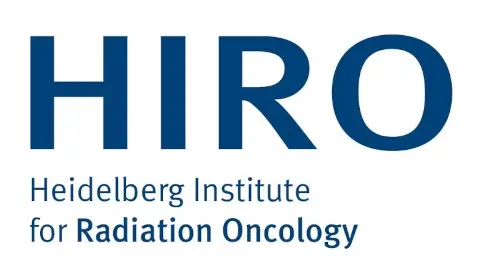Molecular Radiooncology
- Imaging and Radiooncology
- Clinical Cooperation Unit

Prof. Dr. Dr. Peter Huber
The goal of current molecular research in Radiation Oncology is to work towards a personalized medicine program, applying high-throughput methodologies in preclinical and translational research trials. Genetic key players in radioresistance and the determinants of recurrences after radiotherapy are being investigated to broaden the therapeutic window and improve clinical outcome in radiotherapy cancer patients.

Our Research
To this end, we are conducting investigations in preclinical and clinical research in the following areas:
- Can radiation favorably be combined with specific signaling inhibitors to enhance therapeutic anti-tumor efficacy +/- CTX of VEGF, PDGF, EGF, Integrins, TGF-beta etc.?
- Can combinations of signaling inhibitors (PDGF, TGF?, CTGF) attenuate radiotherapy-associated side effects such as lung fibrosis?
- Prospective trials investigating the immune stimulatory effects of low dose irradiation in tumor patients (pancreatic cancer, liver metastases from CRC).
- Translational clinical studies investigating if radiotherapy (IMRT) can be successfully combined with EGFR or other signaling inhibitors in NSCLC and pancreatic cancer
- The molecular basis of the efficacy of carbon ion/particle radiotherapy
- The network governing the angiogenic switch or other balanced systems in irradiated cancer
- The feasibility of MRI-guided focused ultrasound induced tumor therapy
- New clinical concepts of intensity-modulated radiotherapy treatment using biophysical/molecular/functional imaging strategies.
FUTURE OUTLOOK:
An important goal for Radiation Oncology in the future is the systematic analysis of molecular radiation effects. Aims are the integration of radiation research topics with high throughput biology and radiology platform technologies, such as genomics, functional genomics, epigenetics, proteomics, siRNA screening, bioinformatics, systems biology approaches and molecular and macroscopic radiological imaging. These categories will be linked to classical cancer research expertise in areas such as apoptosis, immunology, stem cell biology, angiogenesis, fibrogenesis, and carcinogenesis or signal transduction. A major goal of Molecular Radiation Oncology is the clinical and biomedical analysis of radiation tumor/normal tissue biology. Key genetic players of radiation effects can be identified by global expression profiling (genomics/proteomics) and sequencing studies in tumor/blood samples in preclinical cell and animal studies, but also in cancer patients undergoing clinical trials. The promising “targets” can be further functionally evaluated for their ability to modulate radiotherapy response by knock outs or pharmacological intervention. The resulting data can then be used to rationally design “targeted drug cocktails” for preclinical cell and animal research and finally, for the translation to cancer patients. To optimize and personalize cancer therapies in the future, we will perform bench-to-bedside research including initiation and conduction of clinical studies.
Team
-

Prof. Dr. Dr. Peter Huber
Head
-
Dr. Ramon Lopez Perez
Researcher
-
Nicole Helker
Sekretary
Selected Publications
Walle T, Kraske JA, Liao B, Lenoir B, Timke C, von Bohlen Und Halbach E, Tran F, Griebel P, Albrecht D, Ahmed A, Suarez-Carmona M, Jiménez-Sánchez A, Beikert T, Tietz-Dahlfuß A, Menevse AN, Schmidt G, Brom M, Pahl JHW, Antonopoulos W, Miller M, Perez RL, Bestvater F, Giese NA, Beckhove P, Rosenstiel P, Jäger D, Strobel O, Pe'er D, Halama N, Debus J, Cerwenka A, Huber PE
Bickelhaupt S, Erbel C, Timke C, Wirkner U, Dadrich U, Flechsig P, Tietz A, Pföhler J, Gross W, Peschke P, Katus HA, Gröne HJ, Nicolay NH, Debus J, Sternlicht MD, Seeley TW, Lipson KE, Huber PE
Osswald M, Jung E, Sahm F, Solecki G, Venkataramani V, Blaes J, Weil S, Horstmann H, Wiestler B, Syed M, Huang L, Ratliff M, Karimian Jazi K, Kurz FT, Schmenger T, Lemke D, Gömmel M, Pauli M, Liao Y, Häring P, Pusch S, Herl V, Steinhäuser C, Krunic D, Jarahian M, Miletic H, Berghoff AS, Griesbeck O, Kalamakis G, Garaschuk O, Preusser M, Weiss S, Liu H, Heiland S, Platten M, Huber PE, Kuner T, von Deimling A, Wick W, Winkler F
Klug F, Prakash H, Huber PE, Seibel T, Bender N, Halama N, Pfirschke C, Voss RH, Timke C, Umansky L, Klapproth K, Schäkel K, Garbi N, Jäger D, Weitz J, Schmitz-Winnenthal H, Hämmerling GJ, Beckhove P
Heidelberg Institute for Radiation Oncology (HIRO)
Our Clinical Cooperation Unit is member of the Heidelberg Institute for Radiation Oncology (HIRO).

Get in touch with us

